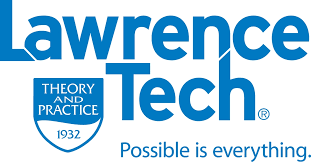
A few weeks ago, the effervescent Maxine Eloi sat down with us to share her passion for equality and the on the ground work she is doing to make. it. happen. Take a few minutes to read the below, then go to https://blacklivesmatters.carrd.co/ and ACT!
How long have you worked with Theater Delta?
Oh my goodness! I think it’s been probably like three years now! I have loved every minute.
What kind of roles have you played with us?
I’ve played a couple different roles. My first gig was at Duke School of Science’s mentor/mentee week, I played a grad student experiencing microaggressions. Then, the last few summers I went on tour for undergrad orientations – this was so amazing and powerful. I’ve been able to work as the character Becca.
Tell us a little bit about Becca:
Becca is in the How About this Party scene, which is basically a nice guy rape scenario – someone who may not seem predatory becomes it over time. Becca plays the girlfriend of the gentleman throwing the party, she engages in toxic masculinity by trying to couple the other guy and girl together. She isn’t necessarily complicit, but makes some mistakes along the way.
It’s been interesting to play this role because I’m not someone who’s been that person – I’m not going to let someone be alone with someone else. She deals with a lot of difficult questions – and the hope by her character is to teach the audiences that we can all do better. Confronting these issues or seeing signs of this toxic behavior will help us step forward into a safer life.
What kinds of things from your work with Theater Delta come to play out in your real life?
Issues that we tackle [both onstage and off] are never black and white, there is always a fluid gray area – some things that should be fundamentally right and wrong become complex issues. You can’t accuse people of doing the wrong thing if they didn’t know any better. TD does this so well by making all of the characters so relatable. We can all find ourselves relating to these faults. It’s not about being an evil person, we can all be better when we are more aware, more educated.
Taking a turn here, in what ways have you been personally affected by racism?
Where shall I begin? I am a first generation American. My parents are from Haiti. I love them and my heritage, and I definitely feel 100% American and 100% Haitian. My dad worked hard in the biotech field to provide us a safe living environments. This was the hope of his [and many others’] immigration: 1. You’ve made it 2. Your kids are safe. This also meant I was mostly raised in homogeneous, suburban towns. I was often the only black girl in my class. So it was funny, it was almost as if I lived this dichotomy, where I’d experienced and internalized microaggressions that were not realized until much later on.
When I lived in the Pacific Northwest, people were open minded but not fully educated on privilege and history. I experienced echo chambering, we were complacent rather than challenging by rolling eyes when family members said something racist at Thanksgiving dinner rather than speaking up against it.
Looking back at my college education, I attained my BFA at Boston University, the curriculum was white male centered in terms of what we read, shows we put on, etc. I didn’t even think about this until recently, but I didn’t have a single black teacher in my program. I loved my education and everything I got from there, but you see how deep the system is, how far it goes. Even in very liberal environments white supremacy is very insidious.
I hold onto an understanding that I grew up oblivious to a lot of those things, I didn’t have that anger/frustration that so many other Black people experience due to hate. I am grateful to learn about these things now, but a little bit sad that I wasn’t able to speak up for myself earlier. I still think about experiences in which I knew something that was said/done was wrong but couldn’t figure out exactly what. That’s why I don’t want to stay silent now. I want to make up for lost time.
What does not staying silent look like?
Oh my gosh, it’s exhausting! I am surrounded by so many people with so much privilege that it’s very difficult to get past their egos to have them realize that they are part of the problem. And it can get really uncomfortable.
Every morning I wake up and see what I need to take care of that day. I sign petitions and I’m currently engaging in dialogue on a group chat in which I am the sole POC voice, and it gets pretty intense. My comfort zone doesn’t matter, though, when people are dying and when there are things that need to change systematically. I cannot just go along with my day and let people get away with it. What if we all take on the burden of enacting change as our societal goal? There is only one race – the human race.
What do you do when speaking out becomes overwhelming?
I have to get creative. Spending time in nature is healing, cathartic. I’ve tried to use this extra time during quarantine as a way to slow down and work on projects. Back in March I wrote a song that feels like Covid, and I’m currently partnering with a close friend to write a short sci-fi series in which the main characters are two Black women that deal with subtle microaggressions, misogyny and other things that are being perpetuated today. We are all constantly in the capitalist grind of making ends meet, and it’s been healing to congregate together to make our art.
As we wrap up, what do you wish other people could understand about race in America?
Fundamentally, America was built off of racism. Everyone that isn’t indigenous is an immigrant, every single one of us. The people who did the physical labor in order to create the wealth of the Western (and Eastern) world – hundreds and hundreds of years later, still live in a society of being less than. We’ve seen people try to put forth effort to equality for hundreds of years and we still aren’t even close.
We live in fear, where privilege gets to prevail. Rather than living in the world where the 1% runs the show, we all deserve to live in a more equitable society. My hope is that we can unite by community based change. That is how we will see universal change. We are all in this together, we all deserve more, to be safe, fed, insured, have shelter. If there is so much money in the world being pushed to war and oppression, why can’t we pour some of those resources into equality?



















